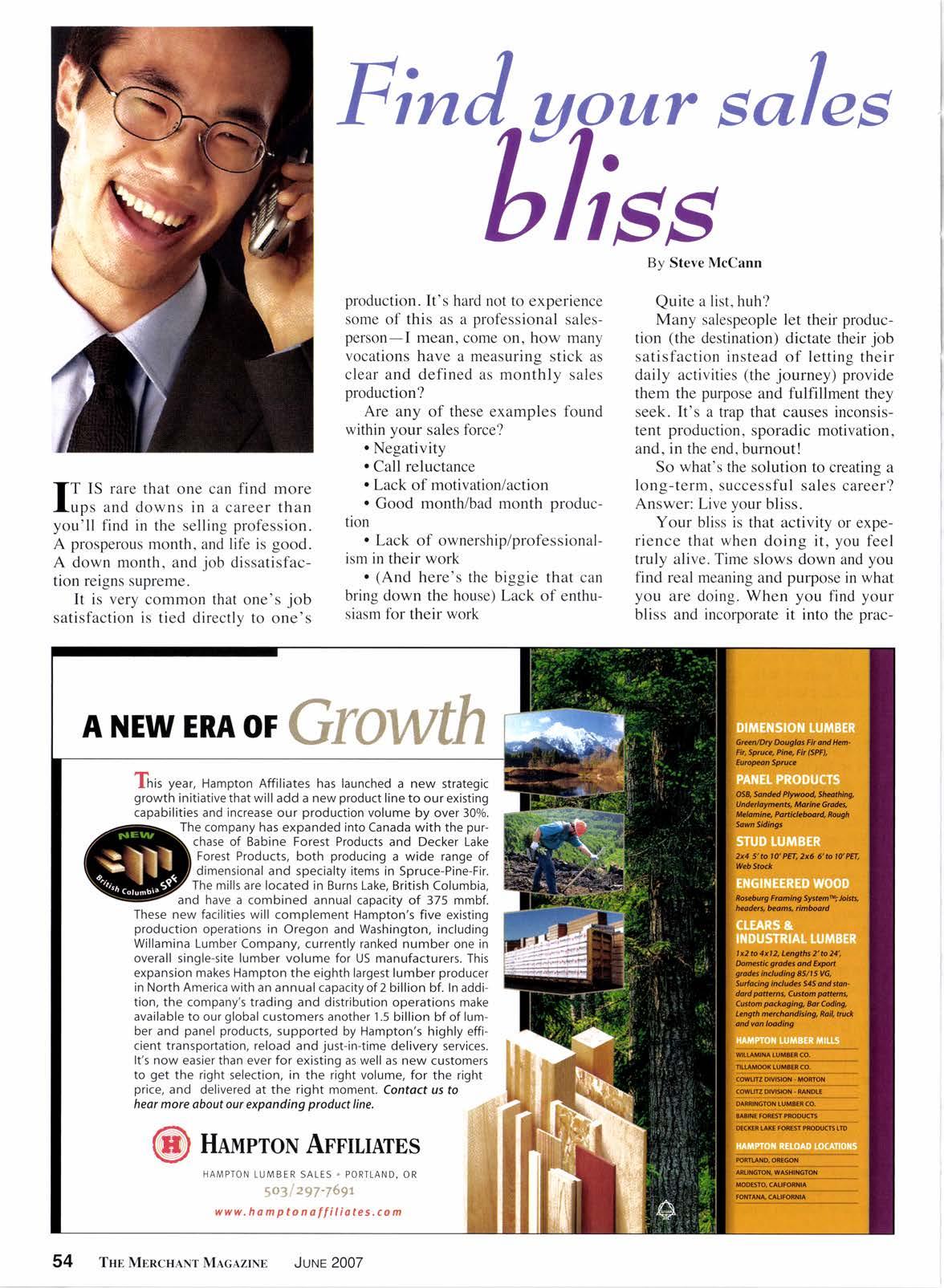
2 minute read
Rope S Deqt|! Mouldlng
hope that this verdict will deter the type of conduct alleged during the trial and encourage companies to act fairly, ethically and scrupulously."
Bill Murschel, a spokesperson for Key, said that the company might appeal the decision. "While we respect the jury's decision, we believe we have substantial grounds for an appeal based on rulings made and instructions issued by the court during the case. Unfortunately, because of the possibility of an appeal, we cannot comment further."
More Logs From Northwest?
Washington's Department of Natural Resources plans a milestone harvest of more than 100 million bd. ft. of timber from state forestlands on the Olympic Peninsula during the next fiscal year, which begins in July. Statewide, DNR plans to sell633.8 million bd. ft. and collect about S134.4 million.
"We haven't cut 100 million bd. ft. since 1988, and that was the year the spotted owl was listed," said Al Vaughan, assistant regional manager for DNR's Olympic region. State harvests dropped after the owl was listed, but slowly recovered during the 1990s as the agency implemented changes to protect the bird's habitat.
Vaughan said that the projection represents more than a 33Vo increase over logging in recent years, when harvests were about 75 million bd. ft. annually. "The real challenge for the industry now is going to be finding the crews to do all the harvesting," said Bill Herman, part owner of Herman Brothers Logging and Construction, Port Angeles, Wa. "The industry is alive and well, and the trees are growing to meet the demand."
But other members of the logging industry caution that the projections are subject to adjustment, due to fire, wildlife protection, the state's level of manpower, and the depressed price of processed wood. "If they reached 100 million board feet, I'd be surprised," said Russ Westmark, log buyer for Portac Inc.'s mill in Beaver, Wa.
Forestry also has a political component to it, said Randy Schuchardt, general manager of the Green Creek Wood Products mill in Port Angeles. "This is a great step in the right tion," he said. "I think they'll live up to their end of the bargain, as they have in the past."
Weyco Delays Moving Log Export Operation
Weyerhaeuser Co., Federal Way, Wa., has promised changes for the log-export operation they want to move from Tacoma to Olympia, Wa. The move was scheduled for last summer, but environmental challenges have caused delays.
Proposed improvements include cleaner-burning mufflers on dieselpowered log-handling equipment, quieter "smart alarms" to warn pedestrians when equipment backs up, and installing hoods on light poles to reduce glare and intensity. "We just think it's the right thing to do; people here are concerned about this," said Jon C.W. Seifert. operations manager of the Tacoma facility.

Officials at Weyerhaeuser and the Port of Olympia maintain that the logexport operation would have no significant environmental impact on Olympia.
Environmental activists disagree. "No number of hooded lights gets to the basic point that this is a huge industrial facility," said activist Jerry Parker. "They're just applying patches all over the place."
Activist Arthur West said that city, port and Weyerhaeuser officials haven't sufficiently reviewed the environmental impact of additional log trucks, ships and barges in Olympia. He predicted that environmental challenges in the courts, including appeals to the state Supreme Court, could delay the project for at least another year.
Weyerhaeuser wants to move the log-export operation closer to where it harvests timber in southwest Washington. Since the logs would then be barged to Japan, activists believe that more study is necessary. "The ships are noisy," said activist Jerry Dierker. "They produce a great amount of air pollution, too."
Weyerhaeuser hopes to begin building a shop and office on port property by the end of the year, but realizes that environmental challenges and appeals may delay actual log exports.
"This has taken longer than we anticipated, but we're still optimistic," said spokesperson Frank Mendizabal. "Is it possible we could wear down? Yeah, sure, eventually. But at this point, we're moving forward."









